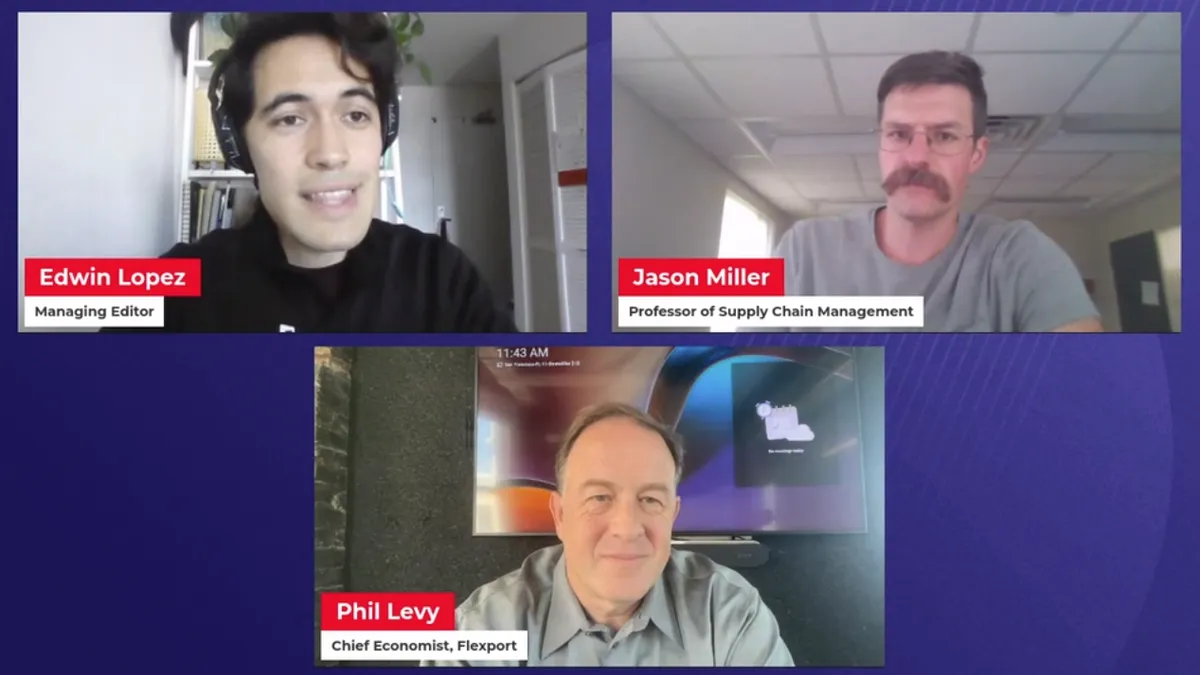Editor’s note: This story is part of a series highlighting takeaways from a July 11 event hosted by Supply Chain Dive, Transport Dive and Manufacturing Dive. Register here to watch the replay on demand.
As long as single-family housing activity doesn’t take a deep dive, the U.S. could avoid further fallout as it transitions economically into a post-pandemic world.
That's according to Jason Miller, an associate professor and interim chair of Michigan State University’s Supply Chain Management Department, speaking during Supply Chain Dive’s July 11 virtual event “Supply Chain Outlook: Trends and Risks To Watch in 2023.”
He noted that the best-case scenario for the economy for the rest of 2023 would have new construction of single-family housing improve, possibly putting housing activity 10% to 15% higher than it was prior to COVID-19. The ability for consumers to pay for major expenses such as homes and cars as well as businesses’ capacity for significant projects can signal how the economy is doing amid federal interest policy shifts, panelists said.
But the country seems to be heading for a hard landing, Flexport Chief Economist Phil Levy also said as a panelist. He said it's unclear when that could happen, though.
He advised that businesses shouldn't overextend themselves, be ready to know if economic problems will occur and monitor if issues are happening sooner than expected. Watching the labor market and whether core inflationary measures are moving significantly downward or not are good signs to pay attention to, he added.
The Federal Reserve has sought to control inflation by raising interest rates and cutting its balance sheet since March 2022. Levy noted that a core Personal Consumption Expenditures inflation rate and a core Consumer Price Index — the CPI minus food and energy — have been hovering between 4.6% and 4.8% for months, but the Fed wants them to be 2%.
But if inflation remains stubbornly high, the Fed will continue to raise interest rates, putting a damper on demand, panelists said.
"Are they remaining stubbornly high?" Levy said. "In which case, buckle in."














